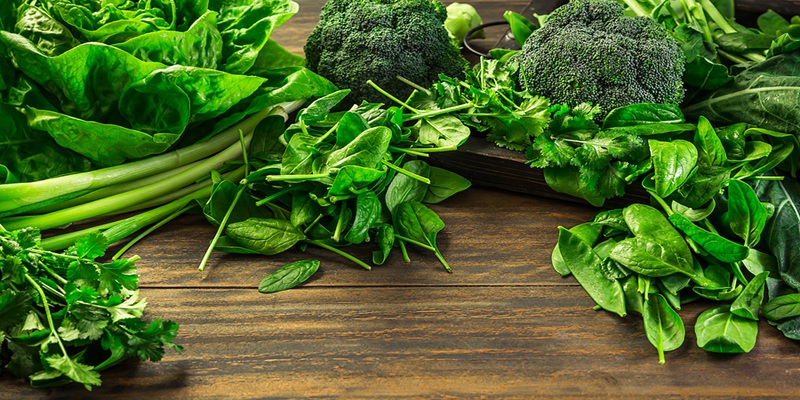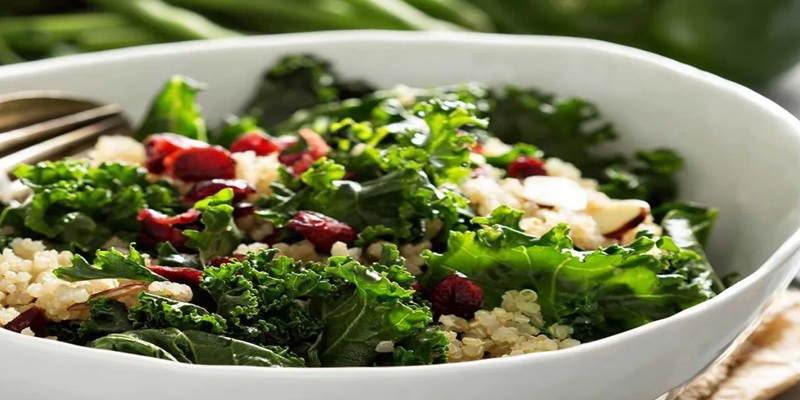What Foods Are High In Magnesium
Magnesium is vital for energy, muscle function, and heart health. Deficiency can cause fatigue, cramps, and serious conditions. This article explores what foods are high in magnesium, offering simple dietary adjustments to help boost magnesium intake and improve overall health and wellbeing.
Magnesium is vital for energy, muscle function, and heart health. Deficiency can cause fatigue, cramps, and serious conditions. This article explores what foods are high in magnesium, offering simple dietary adjustments to help boost magnesium intake and improve overall health and wellbeing.
The Importance of Magnesium
Magnesium is essential for muscle function, energy production, and enzyme reactions. It aids in muscle contraction and relaxation, helps produce ATP (the energy currency of cells), and supports critical processes like protein synthesis, DNA/RNA synthesis, and carbohydrate metabolism. The recommended daily intake for adults is 310-420 mg, depending on age and sex, with varying needs for children and teenagers.
Magnesium deficiency can lead to symptoms like muscle cramps, fatigue, and anxiety. Long-term deficiency increases the risk of serious health issues, including heart disease, osteoporosis, and type 2 diabetes. Ensuring adequate magnesium intake is vital for maintaining good health and preventing these complications.
Primary Food Sources of Magnesium
Leafy Greens
Leafy greens are a powerhouse of nutrients, particularly magnesium. Spinach and Swiss chard stand out for their high magnesium content; spinach provides around 79 mg per 100 grams, while Swiss chard offers about 81 mg. Both contain vitamins A, C, and K, contributing immensely to overall health. These greens support bodily functions, including bone health and muscle performance, and their low-calorie and high-fibre content makes them excellent for weight management. Including leafy greens in your diet can significantly improve your magnesium levels, promoting heart health and aiding digestion.

Nuts and Seeds
Nuts and seeds are not only delightful snacks; they are also rich in essential nutrients, making them fantastic sources of magnesium. For instance, almonds boast approximately 268 mg of magnesium per 100 grams and are abundant in healthy fats and fibre, supporting heart health. Similarly, pumpkin seeds provide around 262 mg of magnesium per serving size, alongside beneficial nutrients like zinc and iron that enhance immune function and energy levels—adding a handful of nuts or seeds to your meals or as snacks can significantly increase your magnesium intake while providing a satisfying crunch, making it a nutritious and enjoyable choice.
Whole Grains
Whole grains are indispensable components of a balanced diet, serving as excellent sources of magnesium. Notable options like quinoa, brown rice, and oats offer substantial amounts of magnesium—quinoa contains about 64 mg per 100 grams, brown rice around 43 mg, and oats approximately 68 mg, making them outstanding options for breakfast. These grains not only provide magnesium, but their high fibre content and essential minerals support digestive health, stabilize blood sugar levels, and aid in weight management, ensuring a steady release of energy throughout the day.
Legumes
Legumes such as black beans and chickpeas serve as yet another fantastic source of magnesium, making them an essential part of a magnesium-rich diet. Black beans provide approximately 70 mg of magnesium per 100 grams, alongside high protein and dietary fibre content, which promotes satiety and helps maintain stable blood sugar levels. Chickpeas also shine in this area, offering about 48 mg of magnesium while rich in protein, iron, and fibre. Incorporating legumes into your meals can enhance your overall nutrition profile, support heart health, and aid digestion, transforming them into a versatile ingredient for various dishes.
Fish
Fatty fish are esteemed not only for their omega-3 fatty acids but also for their impressive magnesium content. With options like salmon and mackerel, which offer around 30 mg of magnesium per 100 grams, these fish provide numerous health benefits. In addition to their magnesium contribution, fatty fish are rich in omega-3s, known for promoting heart health and reducing inflammation. Including fish varieties in your meals helps boost your magnesium intake and offers a delicious and healthy protein source. Whether grilled, baked, or smoked, fatty fish can enrich various dishes while contributing to a balanced and nutritious diet.
Fruits
Fruits provide a refreshing opportunity to increase magnesium intake. Bananas and avocados stand out for their high magnesium content, with a medium-sized banana containing about 32 mg and avocados offering around 29 mg per fruit. Both fruits are also packed with potassium, dietary fibre, and vitamins C and E. Incorporating these fruits into your diet not only enhances your magnesium levels but also provides essential nutrients that support cardiovascular and digestive health. Whether eaten on their own, blended into smoothies, or added to a salad, they offer a delicious and easy way to boost your overall nutrient intake.
Cooking with Magnesium-Rich Foods
Incorporating magnesium-rich foods into your daily diet can be simple and enjoyable. Here are practical tips to help you get started:
1. Start Your Day Right: Begin your morning with a bowl of oatmeal topped with sliced bananas and a sprinkle of chia seeds. This combination tastes delightful and delivers a significant magnesium boost!
2. Snack Smart: Keep nuts, particularly almonds and cashews, readily available for a quick snack. Pair them with dried fruits like figs or apricots for a delightful balance of sweet and salty, fueling your energy levels.
3. Wholesome Salads: Construct a vibrant salad by blending leafy greens like spinach or kale with quinoa, black beans, and diced bell pepper. Drizzle with a lemon-tahini dressing for an extra delicious boost of magnesium.

4. Delicious Dinner: Try a hearty dish with a black bean and sweet potato chilli. This meal can contain magnesium-rich ingredients such as black beans, quinoa, and even dark chocolate chips for an exciting twist!
Experimenting with these ideas will allow you to enjoy diverse flavours while nourishing your body with magnesium-rich goodness!
Embrace a Healthier You
Magnesium plays a vital role in muscle function, mental wellbeing, and overall health. By including magnesium-rich foods such as leafy greens, nuts, seeds, and whole grains in your diet, you can boost your energy and vitality. Make these nourishing foods a regular part of your routine to support both your physical and mental health, and begin your wellness journey today.